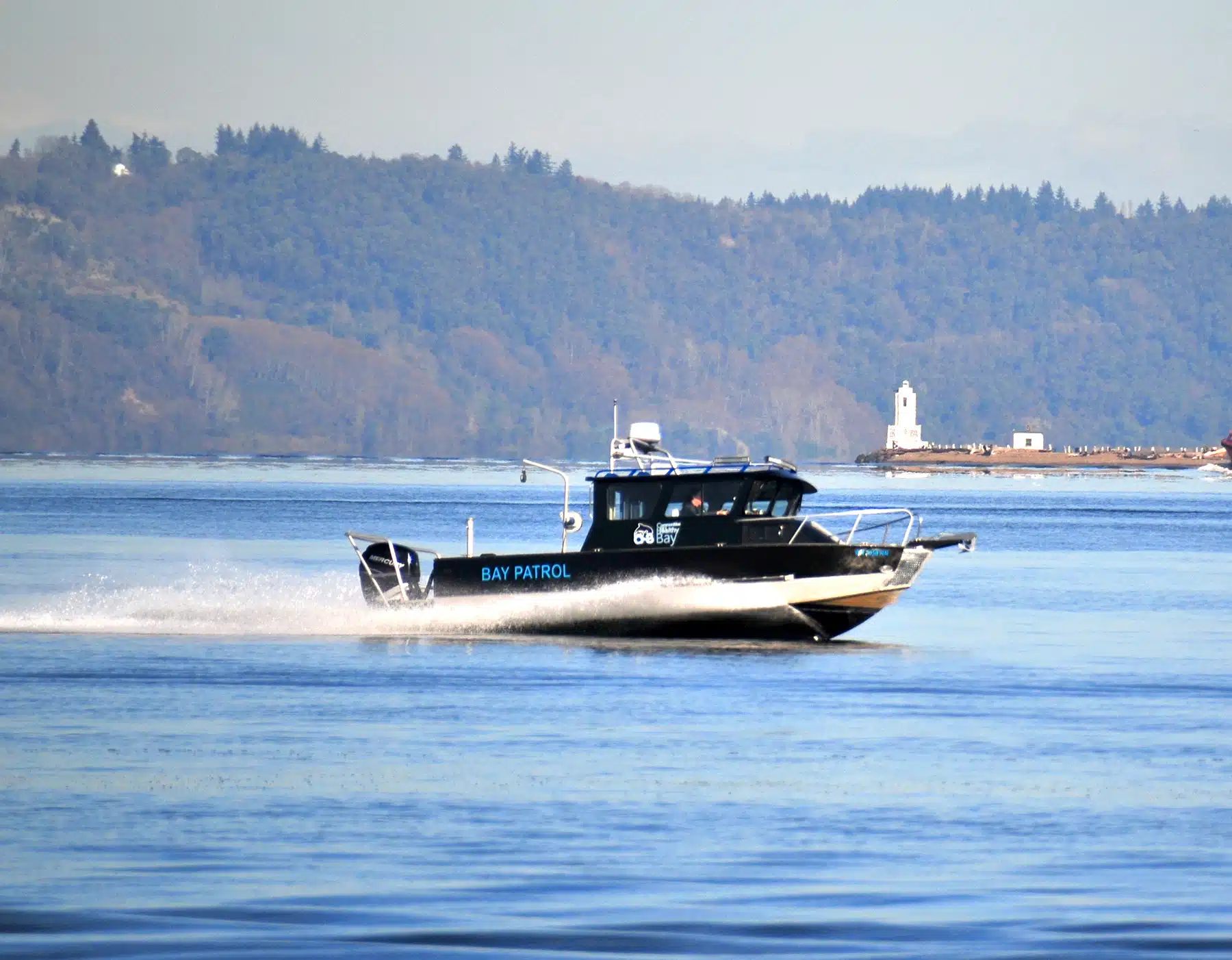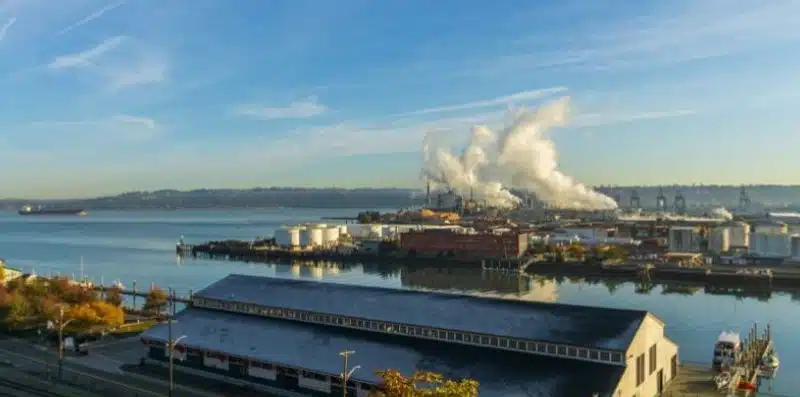
During the pandemic, CHB board and staff have had conversations about racial justice and and the environmental movement, and what being anti-racist actually means. We have been candid and open, and we know we need to do better. We have realized we must approach our work as a community group first – a community group that works on environmental issues. We know we will never have a healthy environment in an unjust society, because environmental progress doesn’t happen in a vacuum – it goes hand in hand with advancing a just and equitable society.
Becoming a true community group will be transformative for CHB and take time, but we are committed.
The first step is to change our name from Citizens for a Healthy Bay. “Citizens” is exclusionary because it doesn’t include all members of this community. There are amazing people who care about and work for a healthier environment who aren’t citizens. We want them to know we see them and that they are welcome to join CHB’s work, and that we’re working for them, too.
CHB is now Communities for a Healthy Bay, to recognize that there are many communities across Tacoma that have an interest in a healthy bay and environment, and that we are working to truly become a group that is made up of, and represents, communities across this city.

On Tuesday November 16, Tacoma showed that polluting industries and monied interests no longer hold the same grip over the city they once did. We proved that when we all unite around protecting the health and wellness of all Tacomans, we can move our community in the right direction.
City council approved significant changes to Tacoma’s land use policy, known as the Tideflats Non-Interim Regulations. These changes will significantly alter the future landscape of the Tideflats, and while imperfect, will ultimately benefit both human and environmental health. These changes are permanent until the adoption of the Tideflats Subarea Plan, but serve as a starting off point for the more transformative land use changes that will result from the Subarea Plan.
Check out our recent blog to learn about what the code does, doesn’t do, and where it fell short.
Earlier in November, our Environmental Justice Camp for Girls traveled to several sites along the Upper White River/ Greenwater River Watershed. Leading the day was Laurel Baum, Conservation Associate and Community Wildlife Monitoring Project Coordinator from Conservation Northwest and Karen Chang, Forest Service Fisheries Biologist.
We first explored where the White and Greenwater Rivers meet, and talked about glacial meltwater, flooding, landslides, and communities affected by these natural disasters. Both rivers meet at the town of Greenwater before flowing to the Puyallup River and eventually into Commencement Bay.
Our next stop took us off the highway and onto the forest service road. This was our opportunity to talk about infrastructure and restoration. Looking over one of the several human-made log jams we were able to see the presence of salmon, leading us to talk about salmon life cycles and their importance to the environment.
Before lunch, we went to help restore a road pullout that had been damaged by off-road vehicle use. Grabbing handfuls of native seed mix, our task was to sprinkle the seeds on bare patches of soil. Our native seed mix consisted of blue wildrye, mountain brome, slender hairgrass, spike bentgrass, Mt. Stuart bluegrass, and western yarrow.
The last portion of the day was hiking along the Greenwater Lakes Trail where we saw a plethora of mushrooms, crossed log bridges, and got sneak peeks of a nearby waterfall. Shortly after gathering the group at our turn-around point, it began to snow.
Raeshawna joined CHB’s Board of Directors in the spring of 2020. Her public service career includes being an Engineering Technician at City of Tacoma in Environmental Services Department, for the Science and Engineering division where she served for 6 years. Her role at the City of Tacoma included design work for civil infrastructure including stormwater and wastewater sewers, roadway designs, and ADA curb ramps for capital delivery projects. Raeshawna recently took on a new role in the City Manager’s Office as a Senior Policy Analyst supporting implementation of departmental Racial Equity Action Plans and the Commission on Immigrant and Refugees Affairs in policy development.
Additionally, Raeshawna works with Bates Technical College to advocate for their engineering technology programs in order to develop a more diverse pipeline by sitting on the Engineering Advisory Committee and serving as an Aerospace Program Navigator.
What drew Raeshawna to her position on the CHB Board of Directors?
“CHB’s work was shifting to include equity in environmentalism, and I saw an avenue to bring my community into environmentalist work. Additionally, I wanted to learn about how CHB protects our waterways.”
What has been the most rewarding aspect of your board work?
“The most rewarding opportunity I have had as a CHB board member was voting in-favor of our name change from Citizens for a Healthy Bay to Communities for a Healthy Bay. That seemingly small change was a big step in showing our commitment to reframing who is welcome to partner with us in this type of work. It is often the small and simple changes that demonstrate inclusion as a value. I am proud to have been in great company with like-minded leaders who made that decision unanimously. Time on the board will be limited to a few years, but the demonstration of our value to equity, diversity, and inclusiveness with a name change will endure. The second most rewarding aspect was the Environmental Stewardship Day we put on to expand our partnership to the faith-based hilltop community.”